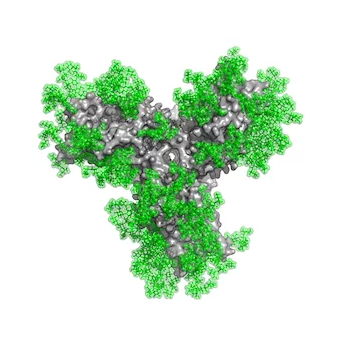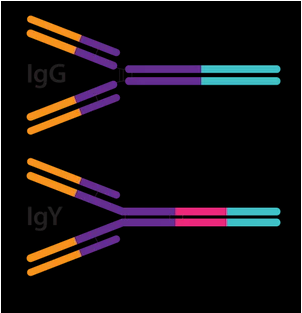When selecting an antigen to use for your project, the considerations required can be overwhelming. ProSci wants your antibody project to run smoothly so your work can be done without interruption. For them to deliver high-performance antibodies, they need the right high-quality antigen for your target. The right antigen will have some well-understood qualities that can make or break your project. ProSci offers extensive experience to customers to help ensure project success.

Glycosylated Proteins
Targeting glycosylated proteins can be difficult. Glycans are often used as self-markers in mammals. When proteins with these post-translational modifications are bound by immunocytes such as T-cells or NK cells, they often do not result in the activation of the immune system. Because they do not induce an immune response, developing antibodies against these targets can be difficult, but not impossible.
To resolve this problem, overexpression of a glycan can be used. In the past, ProSci has overexpressed mannose glycans on the surface of Saccharomyces cerevisiae and used the whole cells as antigens to induce an immune response specific to the glycans in their native conformation. This protocol was originally used for HIV research but can be repurposed to target other glycans. ProSci‘s experience here helps them give you insights for targeting glycosylated surfaces, or even other post-translational modifications.

Highly Conserved Mammalian Proteins
Raising antibodies against highly conserved mammalian proteins is challenging since mammalian immune systems will often recognise the target as a self-antigen as well. There are two commonly used methods to get around this problem.
One method involves taking a peptide fragment of the desired target and conjugating it to a larger foreign immunogen like keyhole limpet hemocyanin (KLH). This 390kDa mollusc protein serves as a large, foreign target that will localise the peptide to immunocytes which will ideally express antibodies against the conjugated target.
Another method to target highly conserved mammalian proteins involves using chicken as a host species. Chickens have innate and adaptive immune systems as well, and their dissimilarities from mammals allow mammalian proteins to be easily recognised as foreign molecules. One thing to keep in mind when using chickens as hosts is that they produce IgY antibodies, not IgG. This is often the cheapest method to develop polyclonal antibodies against a highly conserved mammalian protein, however, this can be problematic if a monoclonal antibody may be desired at a later date.
Originally posted by ProSci: www.prosci-inc.com/blog/antigen-selection/
